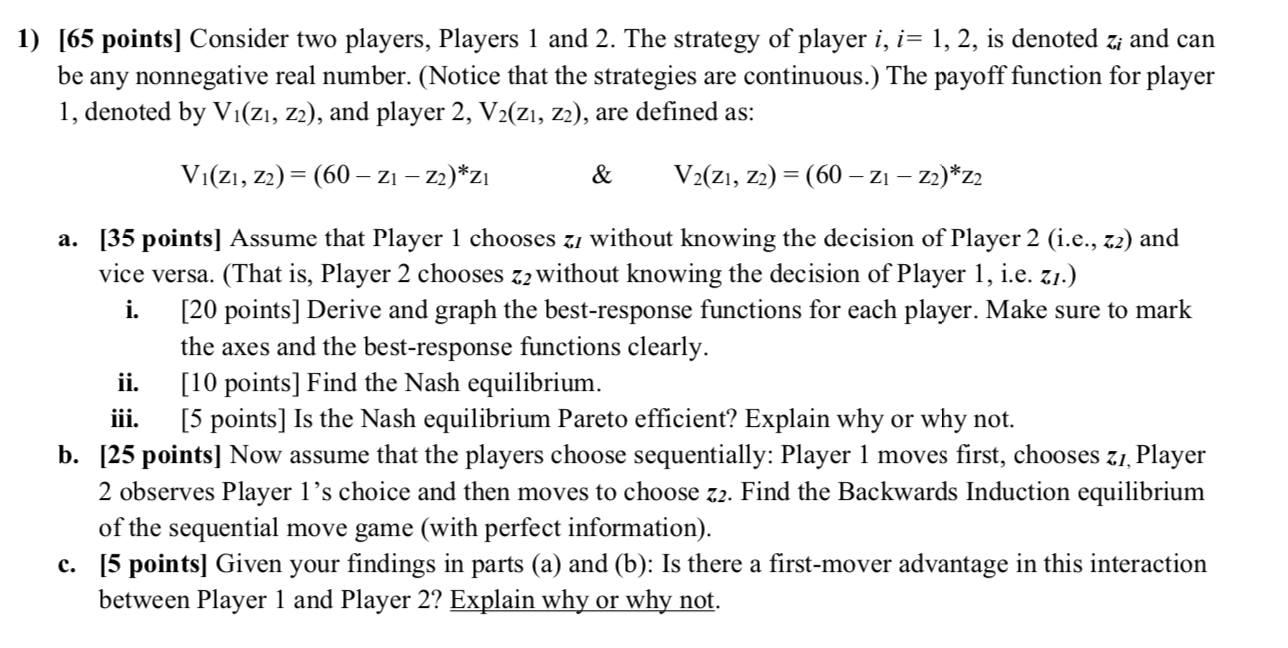Answered step by step
Verified Expert Solution
Question
1 Approved Answer
1) [65 points] Consider two players, Players 1 and 2. The strategy of player i, i= 1, 2, is denoted z; and can be

1) [65 points] Consider two players, Players 1 and 2. The strategy of player i, i= 1, 2, is denoted z; and can be any nonnegative real number. (Notice that the strategies are continuous.) The payoff function for player 1, denoted by Vi(Z1, Z2), and player 2, V2(Z1, Z2), are defined as: Vi(Z1, Z2)=(60- Z1 - Z2)*Z1 & V2(Z1, Z2)=(60 Z1 Z2)*Z2 - a. [35 points] Assume that Player 1 chooses zi without knowing the decision of Player 2 (i.e., z2) and vice versa. (That is, Player 2 chooses z2 without knowing the decision of Player 1, i.e. z.) i. [20 points] Derive and graph the best-response functions for each player. Make sure to mark the axes and the best-response functions clearly. ii. [10 points] Find the Nash equilibrium. iii. [5 points] Is the Nash equilibrium Pareto efficient? Explain why or why not. b. [25 points] Now assume that the players choose sequentially: Player 1 moves first, chooses zi, Player 2 observes Player 1's choice and then moves to choose z2. Find the Backwards Induction equilibrium of the sequential move game (with perfect information). c. [5 points] Given your findings in parts (a) and (b): Is there a first-mover advantage in this interaction between Player 1 and Player 2? Explain why or why not.
Step by Step Solution
There are 3 Steps involved in it
Step: 1

Get Instant Access to Expert-Tailored Solutions
See step-by-step solutions with expert insights and AI powered tools for academic success
Step: 2

Step: 3

Ace Your Homework with AI
Get the answers you need in no time with our AI-driven, step-by-step assistance
Get Started


